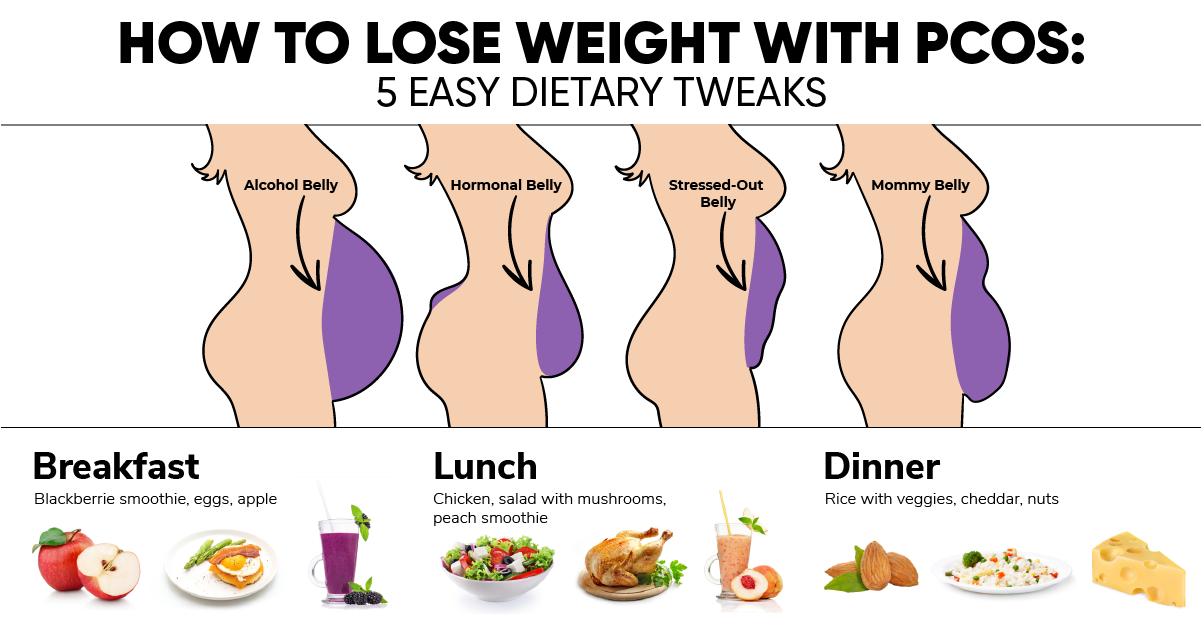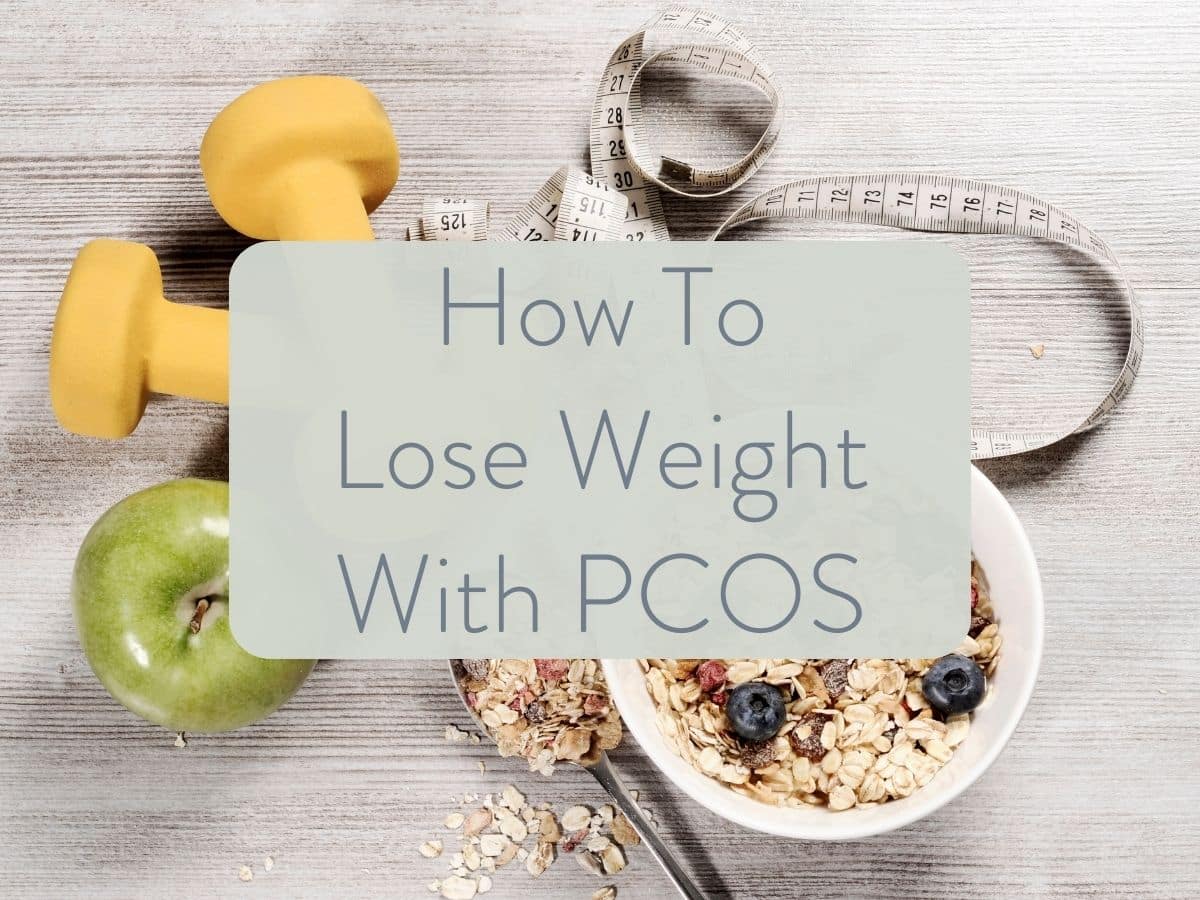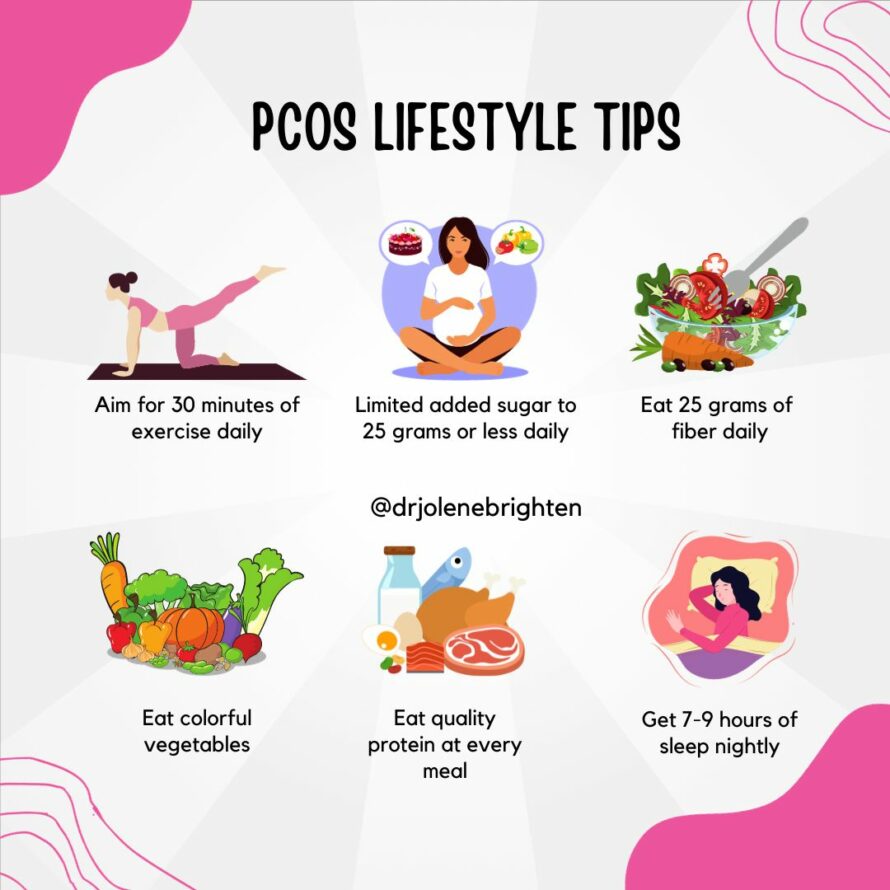Polycystic Ovary Syndrome (PCOS) can make weight loss an uphill battle. But don’t worry—you’re not alone, and there are effective ways to accelerate your progress. This guide will break down all the crucial elements, from dietary changes to lifestyle tweaks, to help you on your journey to losing weight with PCOS.
Understanding Why Weight Loss Is Harder with PCOS
Before diving into specific tips, it’s important to understand why losing weight with PCOS is challenging. The hormonal imbalances caused by PCOS can lead to insulin resistance, increased hunger, and a slower metabolism. This makes the body hold onto weight more stubbornly, even with diet and exercise. But don’t get discouraged—there are ways to turn the odds in your favor.

1. Eat a Balanced, Nutrient-Dense Diet
To speed up weight loss, start with your diet. Experts recommend consuming nutrient-dense foods that are rich in fiber and healthy fats. A balanced diet can help improve insulin sensitivity, which is crucial for women with PCOS. Aim for meals that include:
-
High-Fiber Foods: Fiber helps you feel full longer, making it easier to manage hunger. Think leafy greens, berries, legumes, and whole grains.
-
Healthy Fats: Avocados, olive oil, and nuts can help you stay satiated. Healthy fats also reduce inflammation, a common symptom of PCOS.
-
Lean Protein: Eating enough protein at every meal can curb cravings. Studies suggest aiming for around 30 grams of protein at breakfast to set a good foundation for the day.
2. Lower Your Carb Intake, But Be Smart About It
For many women with PCOS, lowering carbohydrate intake can make a significant difference in weight management. However, it’s not about cutting out carbs entirely—focus on complex carbohydrates like quinoa, oats, and sweet potatoes, and avoid refined carbs and sugary foods. This approach helps keep blood sugar levels stable and improves insulin resistance.
3. Increase Physical Activity
Regular exercise is crucial for weight loss with PCOS. Here are a few exercise tips that can make a difference:
-
Strength Training: Building muscle boosts your metabolism, which helps burn more calories at rest. Try weightlifting or resistance band exercises 2-3 times a week.
-
Cardio: Aim for at least 150 minutes of moderate aerobic activity per week. Activities like walking, cycling, or swimming are great choices.
-
Slow and Steady Wins the Race: High-intensity workouts aren’t necessary for weight loss. In fact, over-exercising may worsen symptoms for some women with PCOS. Pilates, yoga, or even a brisk walk can do wonders for your progress.
4. Consider Very Low Energy Diets (VLEDs)
Research suggests that very low energy diets (VLEDs) can lead to significant weight reduction. Some studies show a weight reduction of more than 15% in just 12 weeks for women with PCOS. However, VLEDs should be followed under medical supervision to avoid potential health risks.

5. Prioritize Sleep and Stress Management
It might surprise you, but sleep and stress are significant factors in managing PCOS. Lack of sleep can worsen insulin resistance and increase hunger. Aim for 7-9 hours of quality sleep per night.
Similarly, stress triggers the release of cortisol, which makes weight loss harder. Incorporate activities like meditation, deep breathing, or yoga to manage stress effectively.
6. Hydration: A Simple, Yet Powerful Ally
Staying hydrated can assist in weight loss. Drinking water helps maintain metabolic processes and can also help manage cravings. Aim for at least 8-10 cups of water daily, and avoid sugary drinks. Unsweetened tea or seltzer water with a splash of fruit juice can be a great alternative to soda.
7. Avoid Over-Restricting Calories
It can be tempting to go on a very low-calorie diet, but this approach often backfires. Over-restricting calories can cause your metabolism to slow down, making it even harder to lose weight. Instead, focus on nutrient-dense foods that nourish your body and help you feel full longer.
8. Supplements That Can Help
While diet and exercise are the key factors, certain supplements can also support weight loss in people with PCOS. Some of the commonly recommended supplements include:
-
Inositol: This vitamin-like compound can improve insulin sensitivity and regulate menstrual cycles.
-
Omega-3 Fatty Acids: Omega-3s help reduce inflammation, which is a significant concern for many women with PCOS.
-
Vitamin D: Vitamin D deficiency is common in women with PCOS, and supplementing can help with insulin sensitivity.

FAQs: Answering Your Questions About PCOS and Weight Loss
How Can a PCOS Patient Lose Weight Fast?
To lose weight quickly with PCOS, focus on a diet rich in protein, vegetables, and healthy fats while reducing sugars and carbs. Regular exercise like strength training and cardio is essential. Very low energy diets (VLEDs) can also lead to significant weight loss, but consult a healthcare provider before trying extreme dietary changes.
Why Is Losing Weight with PCOS So Hard?
PCOS-related hormonal imbalances often lead to insulin resistance, making it difficult for the body to regulate glucose and causing weight gain. Additionally, PCOS can cause a slower metabolism and increased cravings, which makes losing weight a challenge even with proper diet and exercise.
How to Lose Weight in 2 Weeks with PCOS?
While significant weight loss in two weeks might not be realistic, you can make progress by focusing on high-fiber foods, reducing refined carbs, and engaging in daily physical activity. Remember, consistency is key—aim for small, sustainable changes rather than drastic measures.
How Long Does It Take to Lose Weight from PCOS?
The rate of weight loss varies from person to person. Some may see changes in a few months, while for others, it could take longer. A safe, sustainable weight loss goal is 1-2 pounds per week. Be patient with yourself and focus on long-term health rather than quick fixes.
What Diet Works Best for PCOS?
The best diet for PCOS includes high-fiber foods, lean protein, and healthy fats. Reducing your intake of processed foods and refined sugars while emphasizing nutrient-dense foods can help manage insulin levels and facilitate weight loss.
Can Metformin Help with PCOS Weight Loss?
Metformin is often prescribed for women with PCOS who have insulin resistance. It can help lower insulin levels, improve glucose tolerance, and, as a result, assist with weight loss when combined with diet and exercise. Always consult your doctor before starting any medication.
How to Stop PCOS Weight Gain?
To stop weight gain, focus on balancing your hormones through diet, exercise, and possibly medication. Eating smaller, balanced meals throughout the day helps maintain stable blood sugar levels. Staying physically active and prioritizing sleep can also prevent further weight gain.
What Are the Best Supplements for PCOS Weight Loss?
Some supplements that may aid weight loss for those with PCOS include inositol, omega-3 fatty acids, and vitamin D. These supplements help improve insulin sensitivity, reduce inflammation, and balance hormone levels.
Final Thoughts: Stay Positive and Consistent
Weight loss with PCOS might be tough, but it’s far from impossible. Small, consistent changes can add up over time and make a significant impact. Focus on sustainable lifestyle adjustments rather than drastic diets, and remember that patience is your biggest ally. You deserve to feel good in your body, and with determination, you can get there.
Leave a Reply
You must be logged in to post a comment.